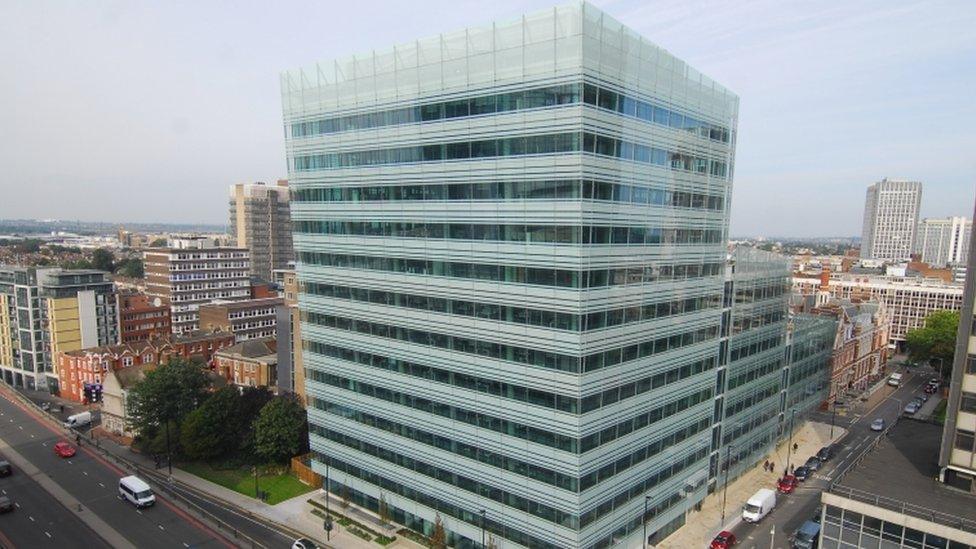Havering Council secures £54m government help to avoid going bust
- Published
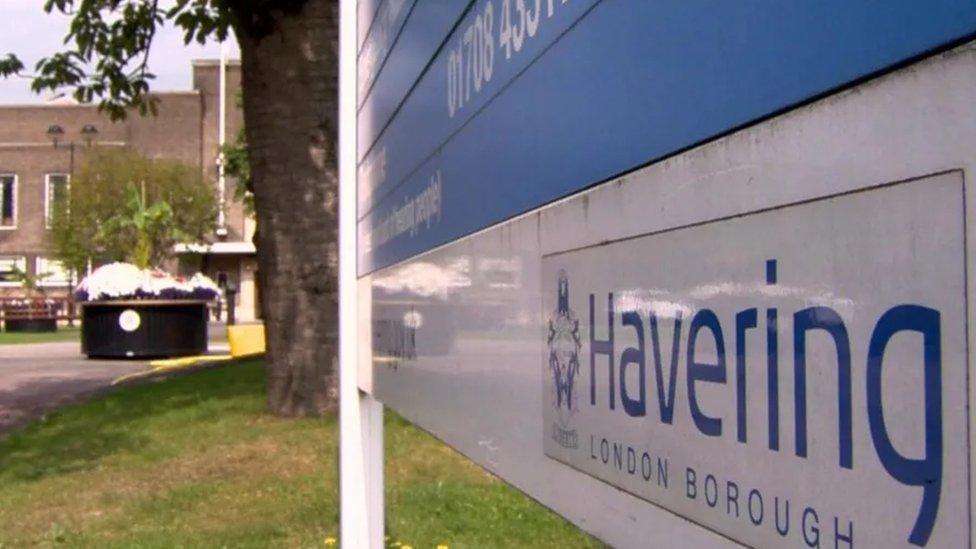
The government is expected to formally announce what support will be given to Havering Council later
An east London council says it has secured £54m in government support to avoid effectively going "bankrupt".
Havering Council applied for help after warning it could not produce a balanced budget in the next financial year.
It comes as the council agreed £15m in budget cuts and an increase in council tax by the maximum 4.99% allowed.
The government is expected to explain what support will be given to Havering and other troubled councils later.
A meeting on Wednesday heard from the cabinet member for finance, councillor Chris Wilkins.
He said the government had confirmed that it would approve a so-called capitalisation direction for the almost £54m that Havering Council needed to balance its books.
The council applied to the government for exceptional financial support after warning that it would not be able to produce a balanced budget in the next financial year.
Councils are required by law to produce a balanced budget. If they cannot balance the books, they do not actually go bankrupt, but what happens is that the council's finance officer issues what is known as a Section 114 notice, external.
This prevents the council from carrying out any new spending until it can balance its books again. It can mean that councils then have to make cuts to non-statutory services to find savings.
The government is expected to formally announce later what form of support it will provide to Havering and to other councils that are on the verge of effectively going bust.
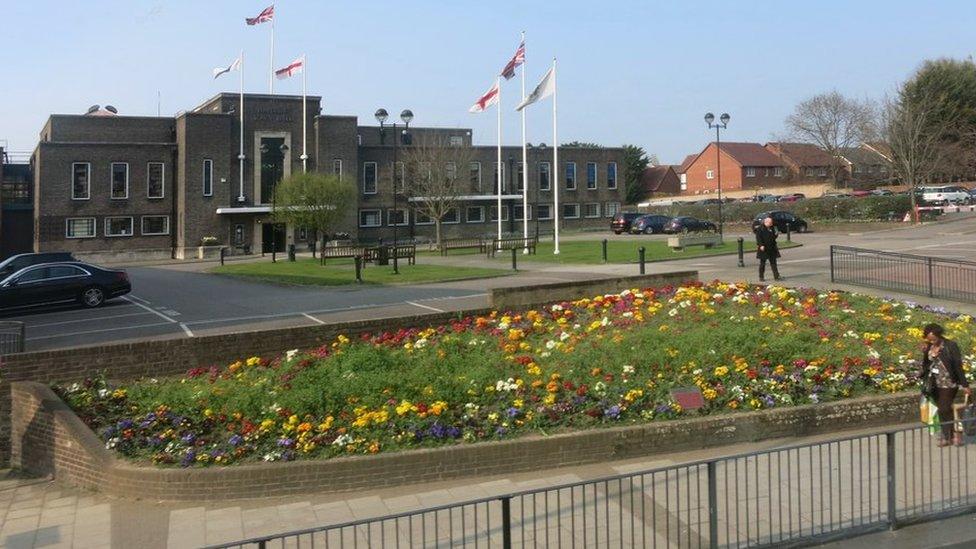
Havering Council said the "the yearly erosion of funding" in local government was undermining "how we deliver our services to residents"
But on Wednesday night, Havering Council's chief executive let the cat out of the bag at the start of a meeting to set the council tax.
Andrew Blake-Herbert told councillors they needed to know that the borough would be able to balance its budget, in order for them to be able to debate the issue.
Mr Blake-Herbert said the council had received a letter from the Department for Levelling up, Housing and Communities on Tuesday evening confirming that the Secretary of State Michael Gove was "minded to approve our capitalisation direction".
He added: "We have approval for the full amount that we requested, although we will obviously only call down the minimum amount that we require."
The Department for Levelling up said a capitalisation direction was "not a bailout or a loan", but that it allowed a council to meet revenue costs "through borrowing or through capital receipts" funded through the sale of assets.
'Facing bleak future'
Havering Council's cabinet member for finance, councillor Chris Wilkins, told the meeting that the government was "minded to approve" a capitalisation direction of up to £53.7m which would cover the council's overspend from this year as well as the £32.5m gap in next year's budget.
But Mr Wilkins warned that "the yearly erosion of funding" in local government was undermining "how we deliver our services to residents".
He warned that this approach was not sustainable in the long term, adding: "rather than short-term fixes, which are nowhere near good enough, a long-term solution must be found.
"If this is not fixed, local government will be facing a bleak future," Mr Wilkins added.

Listen to the best of BBC Radio London on Sounds and follow BBC London on Facebook, external, X, external and Instagram, external. Send your story ideas to hello.bbclondon@bbc.co.uk, external
- Published24 January 2024
- Published4 October 2023
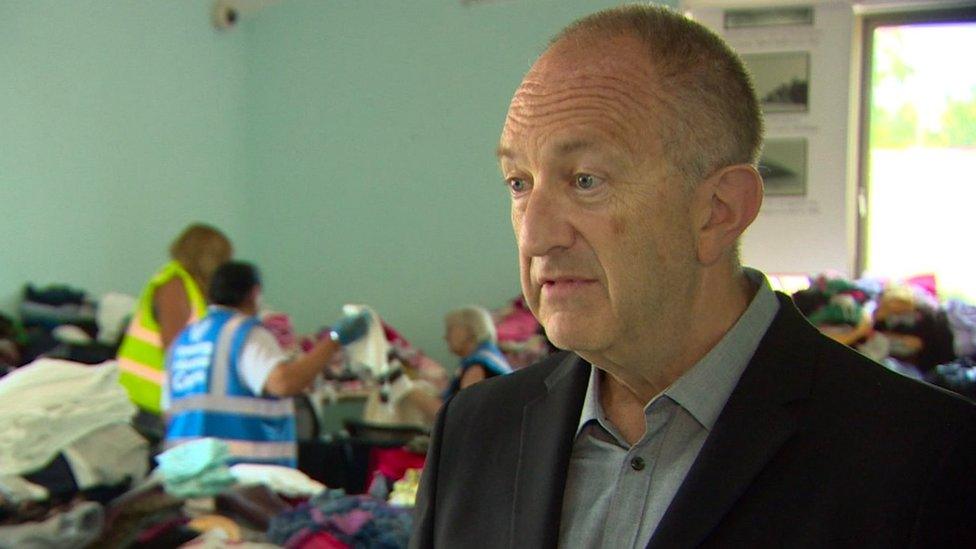
- Published5 March 2024
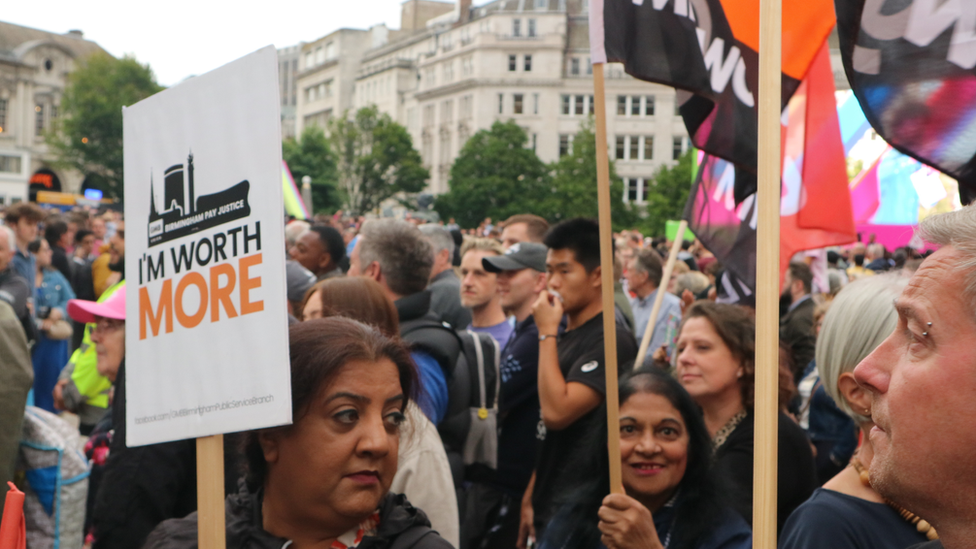
- Published22 November 2022
